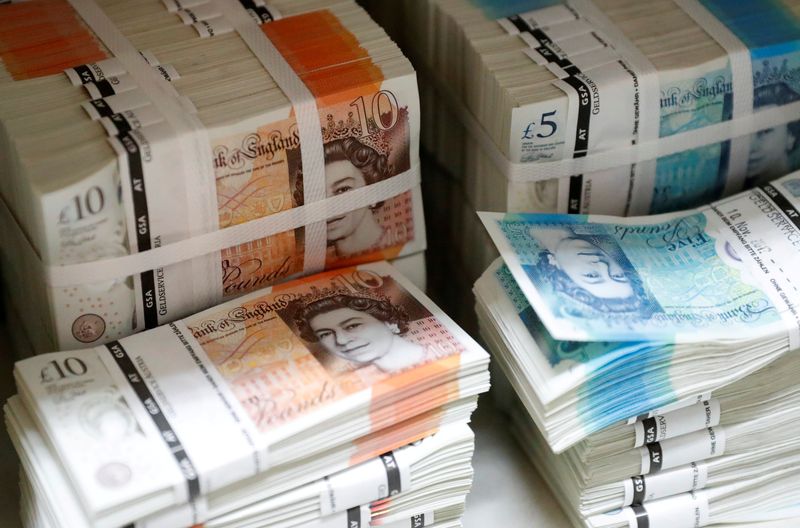By Joice Alves
LONDON (Reuters) - Sterling rose on Tuesday after data showed pay growth was higher than forecast, supporting investors' expectations that the Bank of England (BoE) will continue to hike rates in an effort to tame inflation.
Britain's unemployment rate rose unexpectedly 3.8% in the three months to February - rather than holding at 3.7%, as forecast by economists in a Reuters poll.
But pay growth for the three months to January was revised up to 5.9% and held at that level for the three months to February - well above the forecast of 5.1% in the Reuters poll. Excluding bonuses, wage growth held at 6.6%.
Sterling rose 0.5% against a weakening dollar to $1.2437. It edged up 0.05% against the euro to 88.25 pence, after touching on Monday its lowest level against the single currency since March 23.
"While the unemployment rate ticked up modestly to 3.8... wage gains remain incredibly strong," said Dominic Bunning, Head of European FX Research at HSBC (LON:HSBA) Bank.
"All this may see the BoE take a less dovish approach than other central banks in the G10, whose economies appear to be facing a more acute softening of economic momentum. Any signs of continuing economic divergence in the UK’s favour should result in a stronger GBP," he said.

British consumer price inflation hit its highest in more than 40 years at 11.1% in October, and was still in double digits in February. The BoE expects inflation to fall below 4% by the end of the year as wholesale energy prices fall but markets are still pricing in more hikes from the central bank.
Money markets see an 80% chance that the BoE will raise borrowing costs for a 12th meeting in a row next month to 4.5% from 4.25%, according to Refinitiv. They also expect another 25 basis point hike by September while, by comparison, money markets see the U.S. Federal Reserve cutting rates later this year.